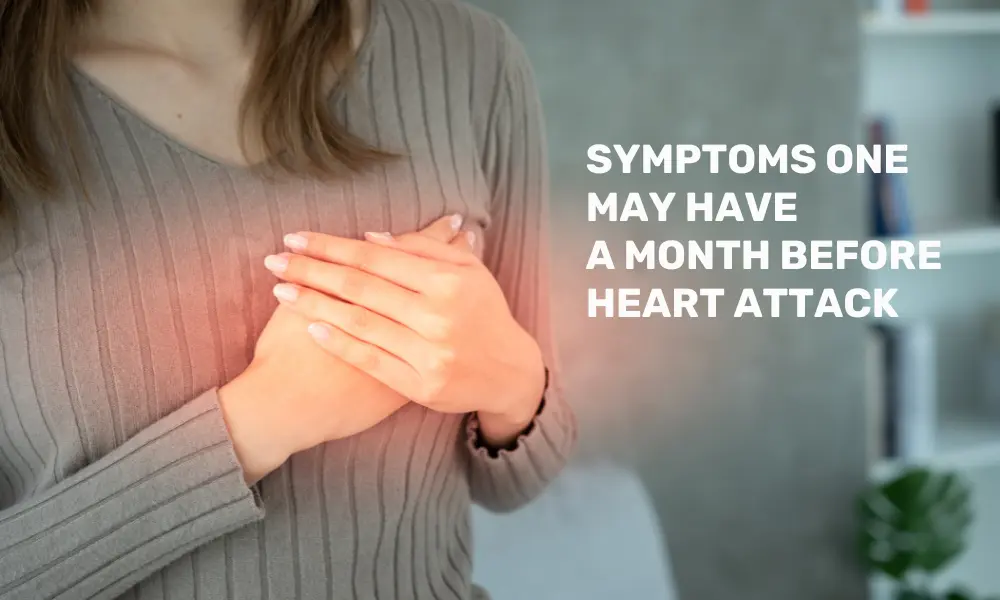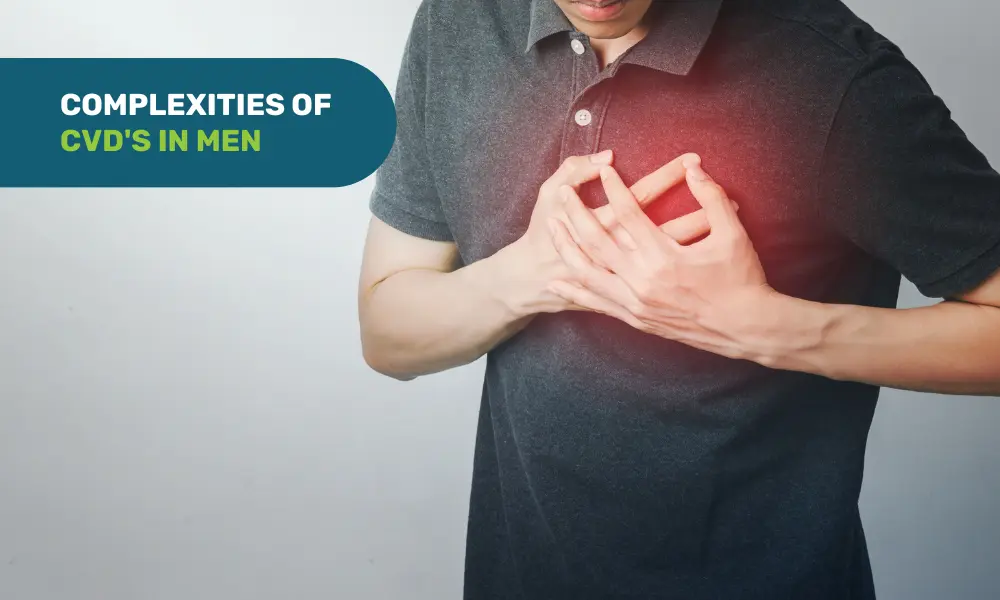A heart attack is a health condition that needs urgent medical attention. It arises when the blood supply to the heart is blocked. This may occur for multiple reasons, including blockage and cardiovascular diseases. Heart attacks and cardiovascular diseases are one of the major reasons behind early deaths globally.
However, there are certain warning signs of a heart attack that may occur a month or even more in advance. These early, prodromal symptoms can help quickly provide required medical attention and improve one’s chances of full recovery.
What are the early signs of a heart attack?
According to experts, one of the most common symptoms of a heart attack that potentially develops months in advance is chest pain. Studies say most survivors of heart attacks have prodromal symptoms.
Apart from that, other usual signs include:
-
Chest heaviness
-
A burning feeling in the chest
-
Sleep problems
-
Heart palpitations
-
Breathlessness
-
Anxiety and stress
-
Unusual fatigue
-
Back and jaw pain
How do heart attack symptoms differ in men and women?
Studies say more than 70 percent of heart attacks occur in males, but women and females are more likely to die within a year of experiencing the condition. However, women are also more likely to have prodromal symptoms than males.
What are the early signs of a heart attack a month before?
Some heart attacks may occur suddenly and intensely, while in some cases, they may begin slowly with mild symptoms. According to recommendations from experts and doctors, if an individual is about to have a heart attack, they may experience certain symptoms, which may include:
-
Pain in one or both arms, stomach, back, neck
-
Breathlessness
-
Feeling of discomfort like pressure, squeezing, fullness, or pain in the center of your chest
-
Light-headedness
-
Cold sweat
-
Nausea and vomiting
What may trigger these symptoms?
These symptoms occur because the heart of an individual with heart disease may not be receiving enough oxygen-rich blood as the coronary artery—which leads to the heart—becomes narrower. This happens due to the buildup of plaque formation on the artery walls, which may worsen over several years. When plaque breaks off, it blocks the blood flow to the heart, slowly killing the heart muscles. A few less common causes may include:
-
The blockage of the coronary artery due to a sudden spasm is mostly likely due to smoking or drug abuse
-
A coronary artery embolism
-
A tear in the coronary artery, which mostly happens in women under 50 years of age
Risk factors of a heart attack
A few risk factors that make you susceptible to heart disease include:
-
High intake of sodium and saturated and trans fat
-
Sedentary lifestyle
-
Smoking
-
Alcohol abuse
-
Medical conditions including metabolic syndrome – obesity, diabetes, cholesterol, blood pressure
-
Family history of a heart attack
Heart conditions develop gradually over the years. What we can control is our present, we must make an immediate switch to healthy lifestyle habits. Further being aware of symptoms that may occur before a heart attack is vital. To reduce the risk of heart attack, one must take regular health checks and consult a cardiologist in case the vitals are concerning.
FAQ on Heart Attack
How do I know if I’m on the verge of a heart attack?
Chest pain or pressure that is caused due to decreased blood flow may occur a few hours before the actual heart attack.
What is usually the first symptom of a heart attack?
Initial symptoms may include chest pain that may feel like pressure, tightness, pain, squeezing and pain or discomfort in the arms.
Are there warning signs days before a heart attack?
Yes, in certain cases, people may experience symptoms hours, days, or weeks before having a heart attack.
What does a mild heart attack feel like?
A person experiencing mild heart attack may have chest pain similar to indigestion. This may vary from person to person.





